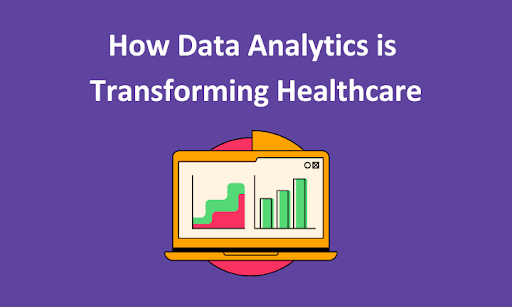The integration of data analytics in health care has revolutionized health care delivery against the conventional modes of administration. Developments in medicine make so explicit the overlaying relationship between technology and health care that many professionals are seen getting enrolled in Data Analytics Courses to have more insights into Healthcare Data Analytics.
This blog tries to explore the likely impact of data analytics in healthcare, which includes improved patient outcomes, procedures, and some form of streamlining of the continuous development within the industry.
Table of Contents
- The Data Revolution in Healthcare
- Harnessing Patient Data
- The Role of Healthcare Data Analytics
- Enhancing Decision-Making with Predictive Analytics
- Streamlining Operations
- Fostering Preventive Healthcare
- The Future Landscape of Healthcare Data Analytics
- Precision Medicine
- Nurturing the Next Generation of Healthcare Data Analysts
- The Importance of Data Analytics Courses
- Conclusion
The Data Revolution in Healthcare
The healthcare industry is undergoing a transformation from paper records and manual operations into more efficient and precise automated processes. Data analytics helps overhaul critical areas of healthcare such as patient information, treatment outcomes, and demographic patterns. With all these, the latest improvements in the tools of data analytics allow the healthcare professionals to achieve the success rates higher than ever before.
Harnessing Patient Data
By thoroughly assessing a patient’s medical history, lifestyle decisions, and genetic predispositions, healthcare experts can now create individualised treatment plans. This degree of personalisation saves healthcare systems invaluable time by improving patient care and assisting with preventive measures. The power of data analytics is used to leverage patient data for better diagnosis and treatment strategies.
The Role of Healthcare Data Analytics
Enhancing Decision-Making with Predictive Analytics
Decisions in healthcare are extremely critical as they determine the difference between life and death for a patient. Practitioners can gain access to predictive modelling techniques through healthcare data analytics. This will help them identify high-risk patients, predict epidemics or pandemics, and allot resources efficiently. These instruments are crucial for effectively overseeing medical facilities and guaranteeing prompt assistance.
Streamlining Operations
Data analytics courses have enabled healthcare administrators to optimise operations beyond patient care. By analysing operational data, hospitals and clinics can improve overall efficiency, manage inventories more skilfully, and allocate resources more efficiently. This efficient method guarantees that medical personnel may concentrate more on patient care than paperwork while cutting expenses.
Fostering Preventive Healthcare
Promoting preventative healthcare is a vital function of healthcare data analytics. By analysing large databases, experts can find common risk factors and patterns that lead to the start of diseases. By taking a proactive stance, healthcare professionals can carry out focused treatments, including lifestyle changes or awareness campaigns, to reduce potential health risks in particular populations. Healthcare data analytics becomes an effective instrument for developing proactive plans that advance public health and well-being and for reactive responses.
The Future Landscape of Healthcare Data Analytics
The combination of data analysis and healthcare promises a secure future filled with more innovative solutions. One of the most effective ways to ensure a functional healthcare domain is by incorporating the benefits of Machine Learning and Artificial Intelligence. This leads to better treatment plans and efficient diagnosis approaches.
Precision Medicine
Precise medicine has been a rapidly developing area in the ambit of healthcare data analytics, aiming at developing a treatment process unique to every patient. From this, healthcare practitioners then draw treatment that would be most effective and foolproof by analysing the genetic, environmental, and lifestyle-related factors of the patient. Precise medicine has reached such a level of personalisation that the one-size-fits-all methods are now rendered obsolete in healthcare.
Nurturing the Next Generation of Healthcare Data Analysts
Learning and education in the data analytics field are emerging as the key determinants of how the healthcare system is likely to shape up in days to come. That becomes necessary, for the integration of data analytics with healthcare opens an entire new area that requires a new class of specialists. Armed with information and skills derived from these courses, graduating professionals will be better placed to put data to use in improving outcomes of health.
The Importance of Data Analytics Courses
Healthcare data analytics courses bridge the demands of the digital world and traditional medical training. By taking these courses, professionals can better understand the nuances of data analysis and make valuable contributions to the healthcare environment. Data analysis is especially vital in evidence-based decision-making which is central to medical practice.
Conclusion
This synergy of data analytics with health care has opened doors for a new era in the accuracy, effectiveness, and better patient outcome of medicine. Further development of data analytics in healthcare will result in a more efficient and customised system of healthcare in the future, leading towards a healthier society. Data analytics courses for the future generation of medical professionals have the potential to become game-changers. For more information, you can visit this website: The Knowledge Academy

























